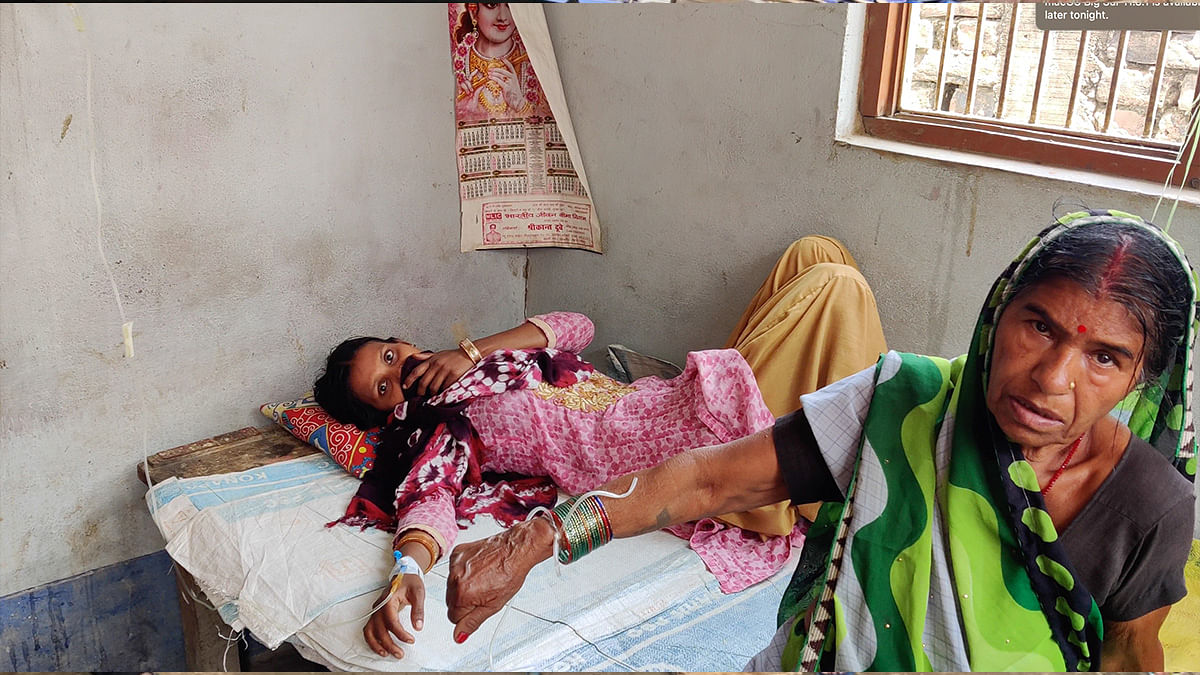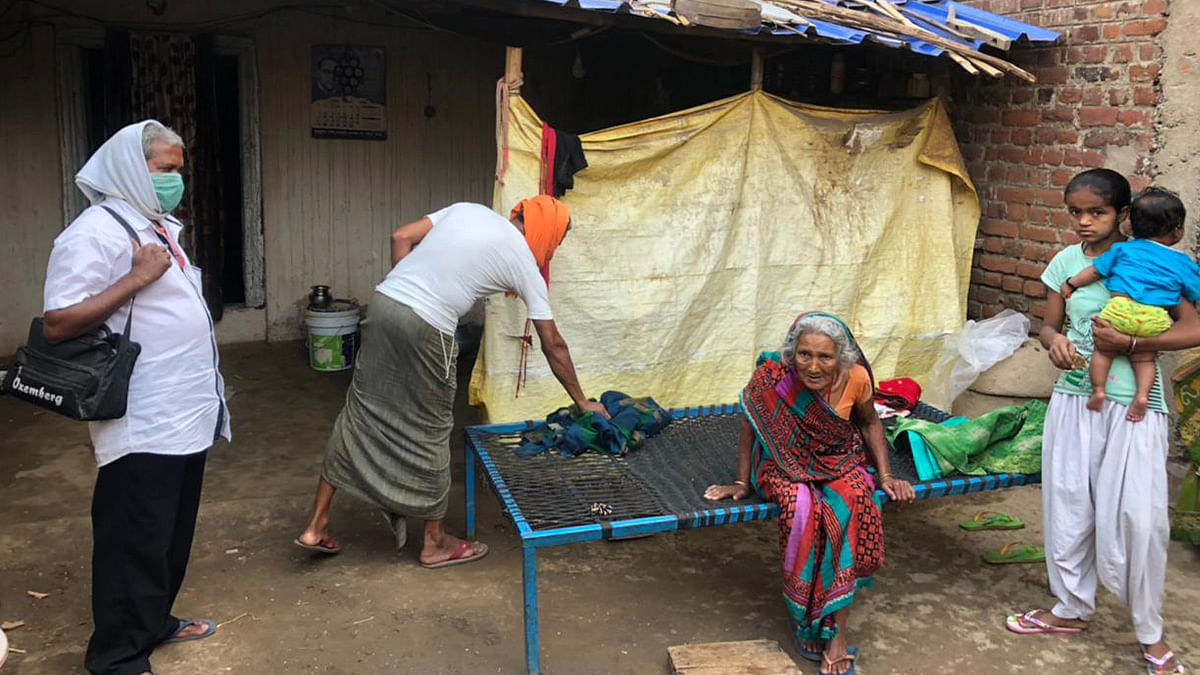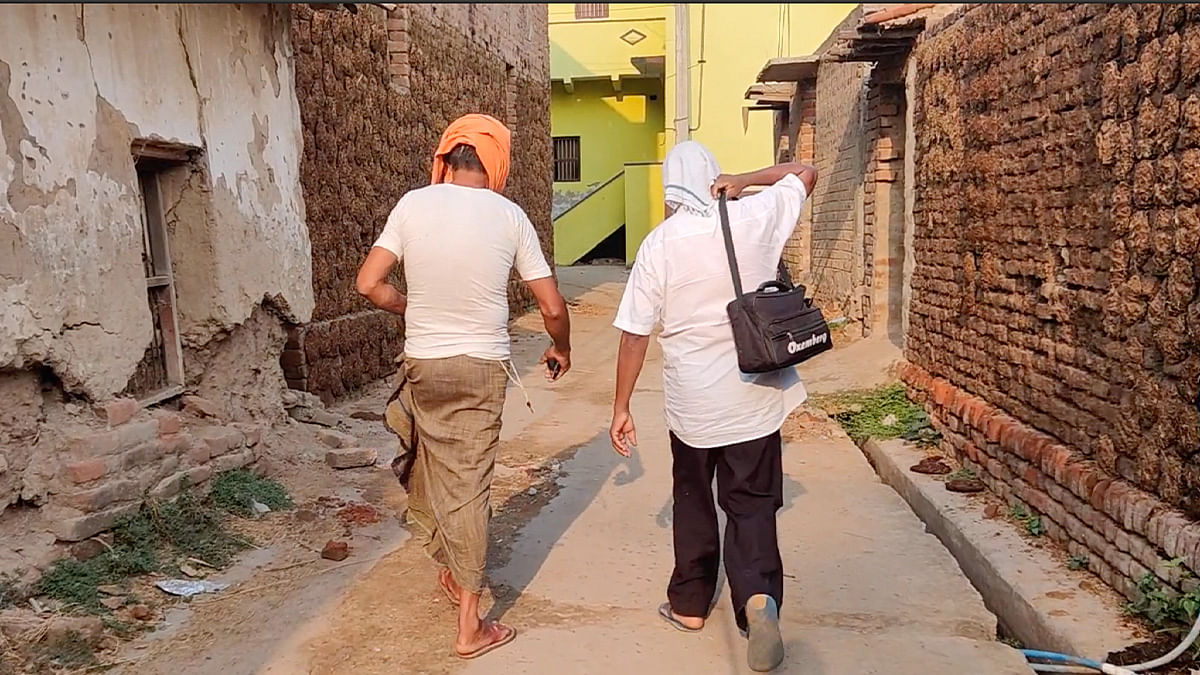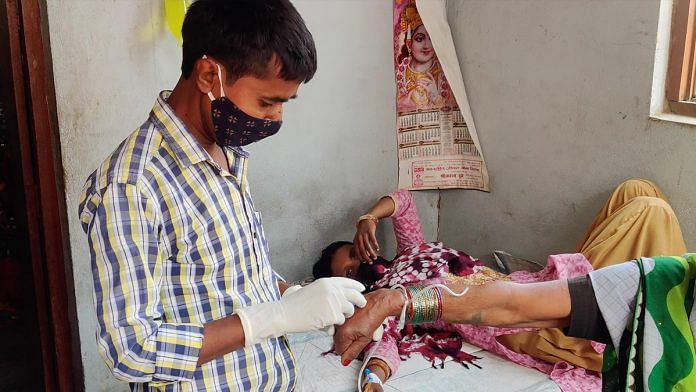Bhojpur (Bihar): In a 8 feet X 11 feet clinic, Kapoori Kumar inserts a peripheral intravenous (IV) in a patient lying on a bed covered with PP (polypropylene) covers of cement bags. The bed has another occupant, a woman with an IV drip inserted in her right hand. Both patients were suffering from dehydration, brought on by diarrhoea.
“There is no joy bigger than that of saving a life. It’s is a good feeling,” says Kumar, with satisfaction, after finishing the insertion.

He is among thousands of unlicensed ‘medical practitioners’ operating in Bihar, mostly in the state’s rural areas. According to some reports, the number of such quacks practising in the state could be in lakhs.
Kumar works as a compounder for a physician in Arrah — a town in Bhojpur district of Bihar — from 10 am to 5 pm. After his duty hours, he attends to his own patients in Bampali village close by.
“Mostly people come to me for things like cough, fever and cold. If I feel any of them has Covid, I advise them to go to the Sadar Hospital in Bhojpur,” he says.
ThePrint met a number of such ‘doctors’ in rural Bihar.
Commonly known as “jhola-chhaap doctors”, these quacks command complete respect and a huge following in their respective areas.
Sipahi, who calls himself a ‘doctor’, practises in Bhojpur district’s Pirhap village.
According to him, people are not dying of Covid but of natural causes. Fifteen people have died in Pirhap in the past two weeks, according to the villagers.
“I always carry medicines like Paracetamol, Azithral, Chloramphenicol and Vitamin C tablets with me, so that I can treat people anywhere,” Sipahi tells ThePrint, as he walks into a 65-year-old woman’s house.
The patient, who is suffering from some gastric ailment, complaints of nausea, even though she says she had the medicines Sipahi prescribed her on his last visit. Sipahi then gives her some new pills, which her son urges her to take on time.

A low doctor-to-population ratio in the state, especially during the pandemic when healthcare facilities across the country have been overburdened, has made these quacks the only hope for many in Bihar’s rural areas.
All that it takes for them to qualify is a few years of apprenticeship or work experience with some registered medical practitioner.
Also read: Army mobilises two field hospitals to assist Bihar govt in fighting rising Covid cases
‘They are all we have’
According to 2018 data from the Directorate of State Health Services & National Health Profile, Bihar has the lowest ratio of doctors in terms of population. The state has one government doctor for 28,391 people against the national average of 1 for 11,082. Delhi has one doctor for 2,200 people.
This is where the quacks step in, catering to rural areas with no to marginal medical infrastructure. Since the lockdown was imposed last year after the pandemic struck, the quacks only rose in importance.
“All the private clinics and hospitals are shut. Where do we go in this situation? They (the quacks) are all we have,” said Krishana Yadav, a resident of Bampali village.
For the villagers, Yadav said, the ‘quacks’ are like “gods, who save lives”.
Kumar Devi of the same village said doctors in big hospital “inject people with poison” and even keep the dead bodies.
Many, however, said people in rural areas mostly prefer ‘quacks’ because “hospitals are overwhelmed by Covid”.
“There have been almost 25 deaths in my village since the first week of April, mostly of those over 60 years of age,” said Anil Yadav, sarpanch of Gillaria village in Bhojpur district.
Even if a severe health condition prompts a villager to consider seeking a licensed doctor or visiting a hospital, the overcrowded hospitals during the pandemic have been a deterrent, he added. “We seek medical help from doctors either on WhatsApp or we go to a jhola-chhaap.”
Also read: Panic in AMU as 18 professors die of Covid in 20 days, V-C wants campus samples probed
A doctor’s apprentice
Most quacks do an apprenticeship with a doctor, before starting their own clinics, mostly in rural areas.
“I wanted to become a doctor. Either by studying or practising,” says Mangal Singh, another ‘quack’ operating in Kaira Bazaar, Bhojpur.
Singh studied zoology as an undergrad, before moving into the medical field.

Sourab Kumar Sharma, a ‘jhola-chhaap’ who practises in Pirhap village, Bhojpur, worked at a hospital for experience.
“I had been an ICU in-charge at a Arrah Hospital for two years,” he says.
Over the years, these ‘quacks’ have become a well-known, even if not officially recognised, part of the medical system in the state.
So much so, that at the beginning of the pandemic, a civil surgeon from Siwan district, Shesh Kumar, suggested engaging them to address the pressure on the healthcare system. He was suspended for making the suggestion.
Now, however, the administration is planning to circulate two-minute video clips by renowned doctors, on how to handle mild cases of Covid, among all kinds of rural-level healthcare workers, a source in the office of the Bhojpur district magistrate told ThePrint.
(Edited by Poulomi Banerjee)
Also read: No, the Western media isn’t biased in reporting Indian Covid. Here’s why



